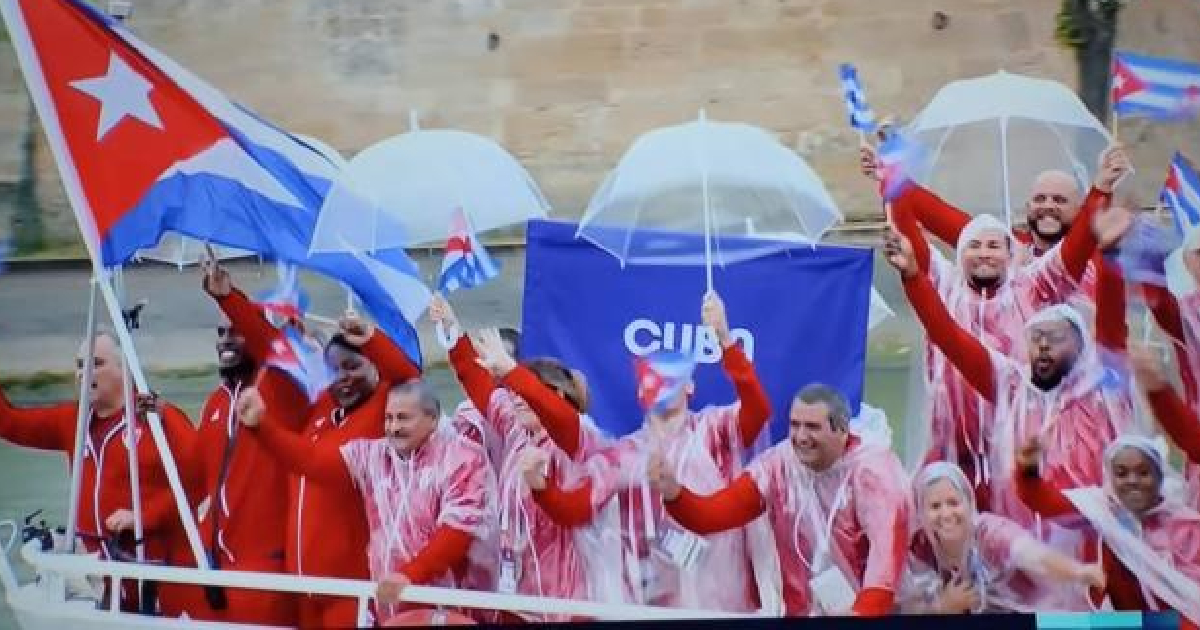The National Institute of Sports, Physical Education, and Recreation (INDER) of Cuba released a statement on Sunday on behalf of the Olympic delegation, invoking "dignity" and the legacy of the late Fidel Castro following their disappointing performance at Paris 2024.
Published on JIT, INDER's official website, the statement acknowledges that the goal of "finishing among the top 20 in the medal standings was not achieved, but efforts were made towards this objective amid an Olympic cycle where sports were not immune to the nation's difficult economic situation."
As is customary when objectives are unmet, the regime claimed "satisfaction for having competed with dignity and adherence to values, inspired by the legacy of Commander-in-Chief Fidel Castro and the commitment to give their all in every outing."
In yet another instance of intertwining sports with politics, the sports organization highlighted that "we take pride in the congratulatory message issued by General of the Army Raúl Castro Ruz regarding the crowning of our flag bearer Mijaín López, and the phone conversations held by the First Secretary of the Party and President of the Republic, Miguel Díaz-Canel Bermúdez, with the wrestler himself and other key figures of the events here. The attention from our diplomatic mission and the Casa Yo Soy Cuba in Tremblay-en-France was also crucial, becoming an open space for the truth about our country."
The statement did not fail to mention some of its well-worn excuses: "It is pertinent to state that, even though the number is lower than the 69 qualifiers for Tokyo 2020, having 61 qualifiers this time is still commendable for a country without the means of the major powers, and impacted by the intensified economic, commercial, and financial blockade imposed by the United States government."
Regarding the competitive landscape, the declaration highlighted the titles of Mijaín López and Erislandy Álvarez; the silver won by Yusneylis Guzmán; and the bronze medals of Yarisleidis Cirilo, Arlen López, Luis Orta, Rafael Alba, Gabriel Rosillo, and Milaimy Marín.
Additionally, it extended congratulations—without naming names—to "those who did not make it to the forefront but performed as expected, with some even achieving historic personal performances. And to undeniable legends like judoka Idalys Ortiz and boxer Julio César La Cruz, now retiring without medals."
Weeks before the summer event began, INDER had made it clear that their goal was to win five gold medals and finish among the top 25 nations, but none of this materialized.
After ending with two golds, one silver, and six bronzes, the largest island of the Antilles finished 32nd in the overall standings, far from the 14th place achieved three years ago at Tokyo 2020, where the tally was seven golds, three silvers, and five bronzes.
Similarly, this marks the worst final position since Tokyo 1964, when Cuba finished 30th, thanks to Enrique "El Fígaro" Figuerola's second-place finish in the 100 meters.
Cuba's Olympic Struggles and Legacy
This section addresses questions and answers about Cuba's recent Olympic performance and the broader implications of invoking Fidel Castro's legacy.
Why did Cuba's Olympic performance fall short in Paris 2024?
Cuba's performance fell short due to a combination of economic difficulties and the intensified blockade imposed by the United States, which affected their preparation and resources.
How did Cuba's results in Paris 2024 compare to previous Olympics?
Cuba finished 32nd in the overall standings at Paris 2024, a significant drop from their 14th place finish at Tokyo 2020, marking their worst position since Tokyo 1964.
What role did politics play in the Cuban Olympic delegation's statements?
Politics played a significant role, with the delegation highlighting messages from key political figures and intertwining their athletic efforts with national pride and political resilience.
